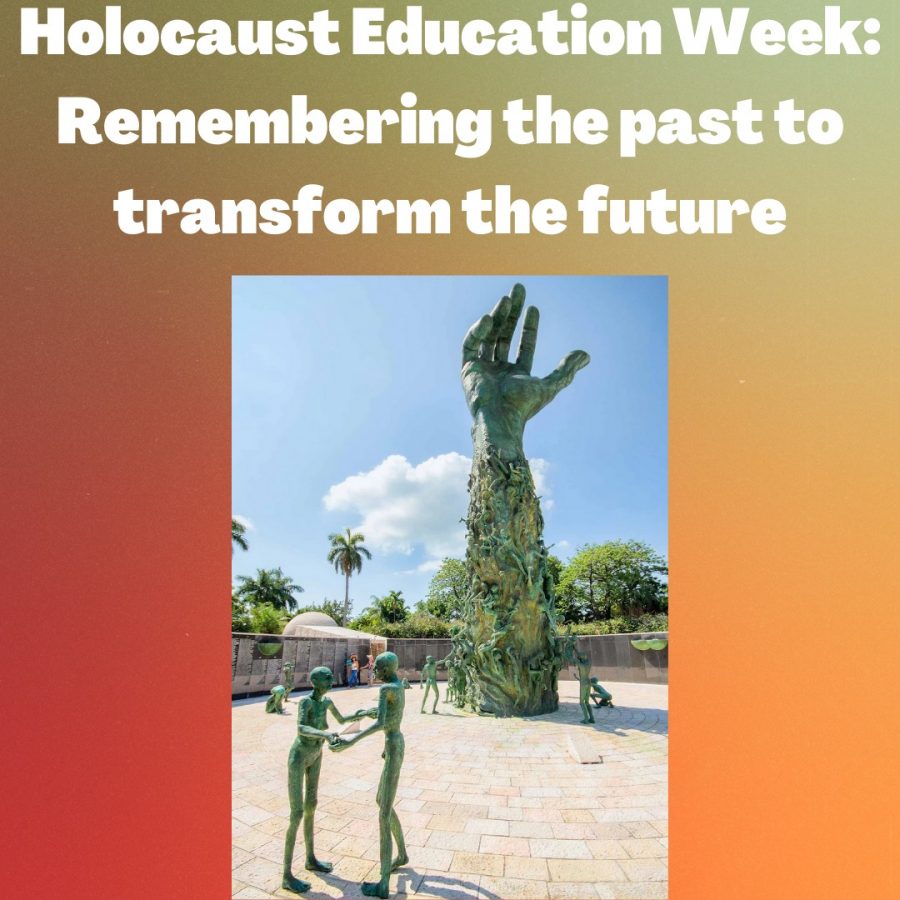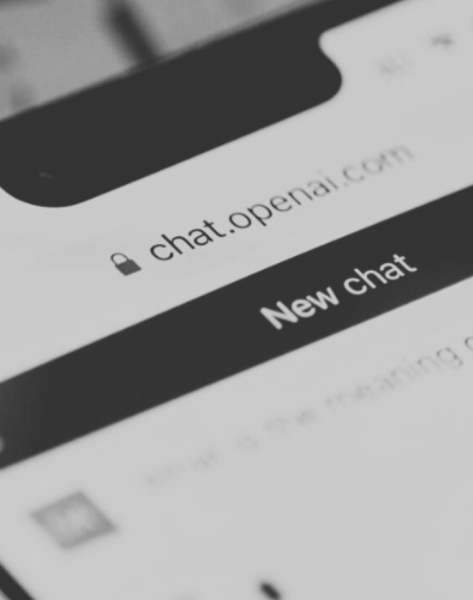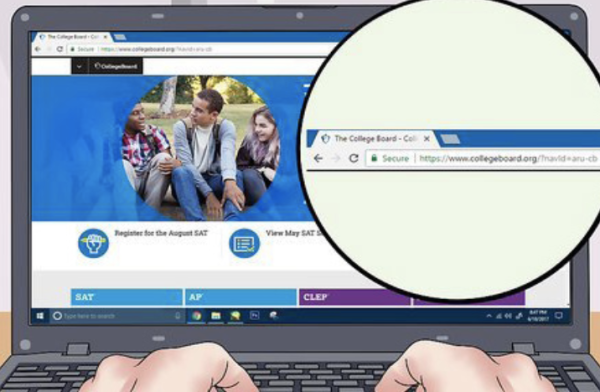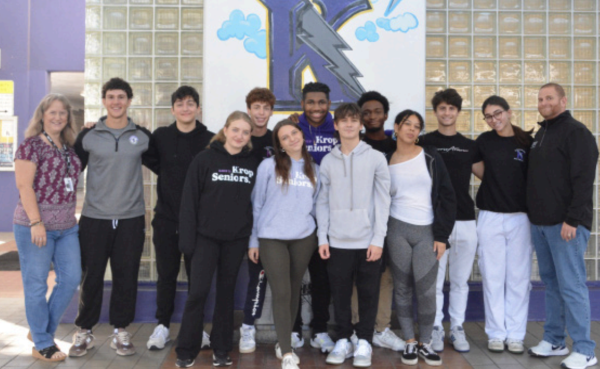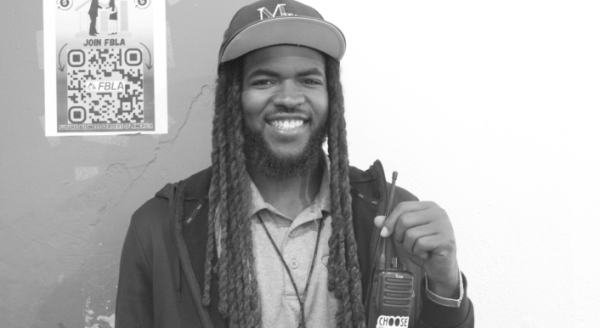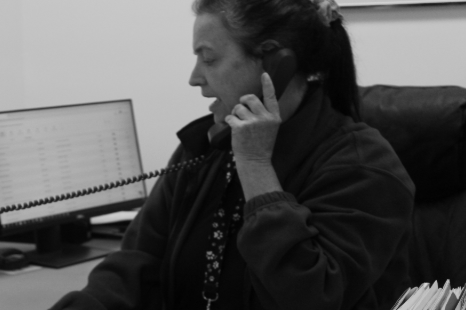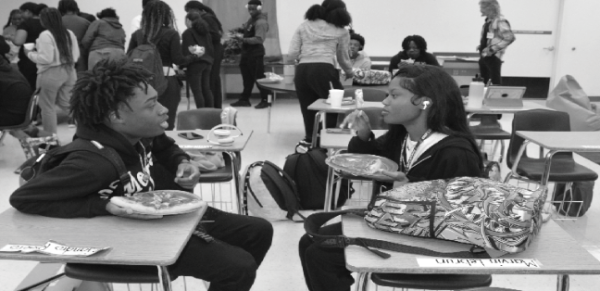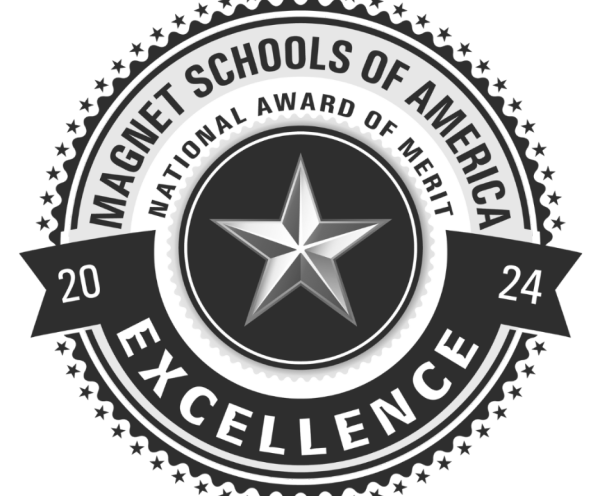Holocaust Education Week: Remembering the past to transform the future
The 2020-2021 school year marks the first Holocaust Education Week in Florida, where teachers will review lessons on the history of the Holocaust and honor the memory of all the victims and survivors. In June 2020, Florida Gov. Ron DeSantis approved the Holocaust Education Bill, creating what is known as Holocaust Education Week.
Between 1935 and 1945, more than six million Jewish people, LGBTQ individuals and handicapped were killed. Anyone who stood in the way of the Nazis were taken to concentration and death camps.
The Holocaust Education Bill requires instruction and remembrance of the Holocaust. The law mandates all school districts to create a Holocaust Education Week as part of the curriculum.
“It’s our obligation to pass on this story so that we do never forget,” Holocaust education program director in Palm Beach County, Kimberly Coombs said.
The Holocaust Education Week begins on Nov. 9 and runs until Nov. 13, coinciding with the anniversary of Kristallnacht, the Night of Broken Glass, when the windows of thousands of Jewish businesses were smashed and over 1,000 temples were also burned to the ground in Germany and Austria.
The education week is meant to “offer an opportunity to reflect on the moral responsibilities of individuals, societies and governments, while working to promote human dignity and confront hate whenever and wherever it occurs,” DeSantis said in his Holocaust Education Week 2020 Proclamation.
Since schools are currently in a hybrid setting, certain changes had to be made for the new annual event. One solution was an online presentation given by Holocaust Memorial Resource and Education Center of Florida. Resource Teacher Stephen Poynor helps teachers implement the Florida mandate through collaborative teacher training, student instruction and curriculum outline. The teachers can then follow these guidelines and incorporate all necessary information for their students.
“Students can use the lessons from the Holocaust to raise questions about: individual and collective responsibility, the meaning of active citizenship and the structures and societal norms that can become dangerous for certain groups and society as a whole,” Poynor said.
Since the Holocaust is part of the ninth grade curriculum and several Advanced Placement courses in Florida, high school teachers have taught some lessons on the event. However, on this specific week, lessons aren’t taught only through books, but from movies, exhibits at the Holocaust Museum in Miami Beach, as well as accounts from survivors.
“We want to make sure this story gets passed on before we don’t have survivors left living anymore,” Coombs said.
Holocaust Education Week was created because of the impact the Holocaust had on not just the victims and survivors, but the entire world. Anti-semitism and post-traumatic stress disorder are just two of the effects that continue to haunt survivors even after several decades. Teaching about the Holocaust is meant to inform younger generations about Jewish history, and why it is important not to let it happen again.
“The key is to not let hate go unchecked but to confront it tirelessly at every turn with facts, historical context and passion,” English teacher Andrew Reich said.


